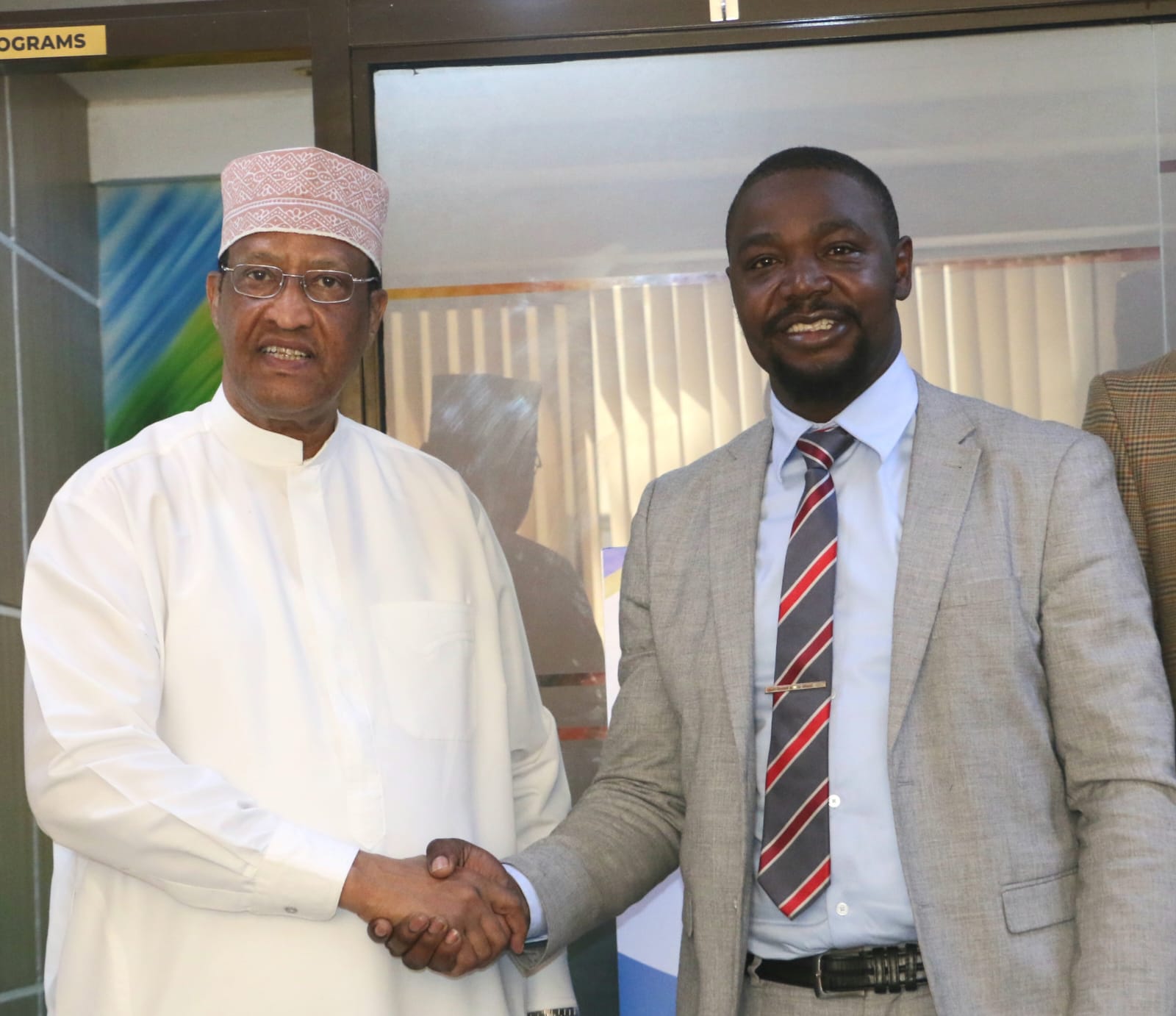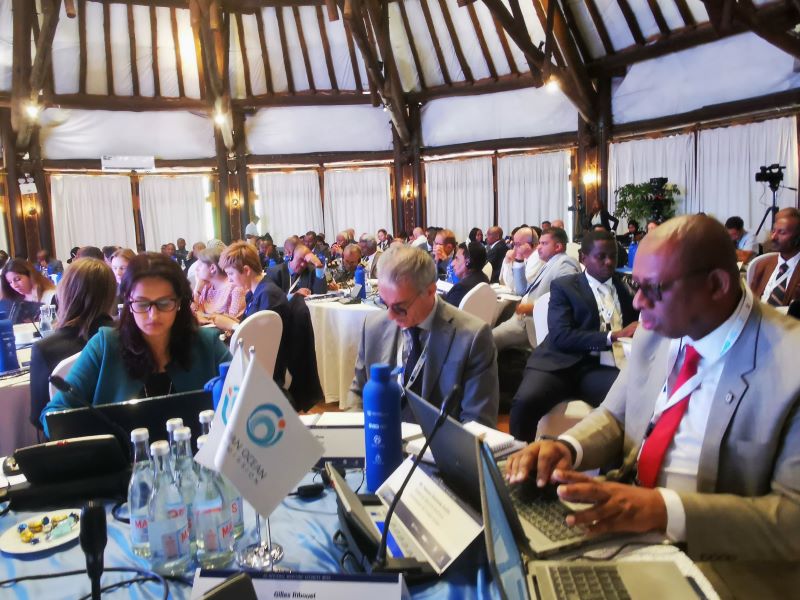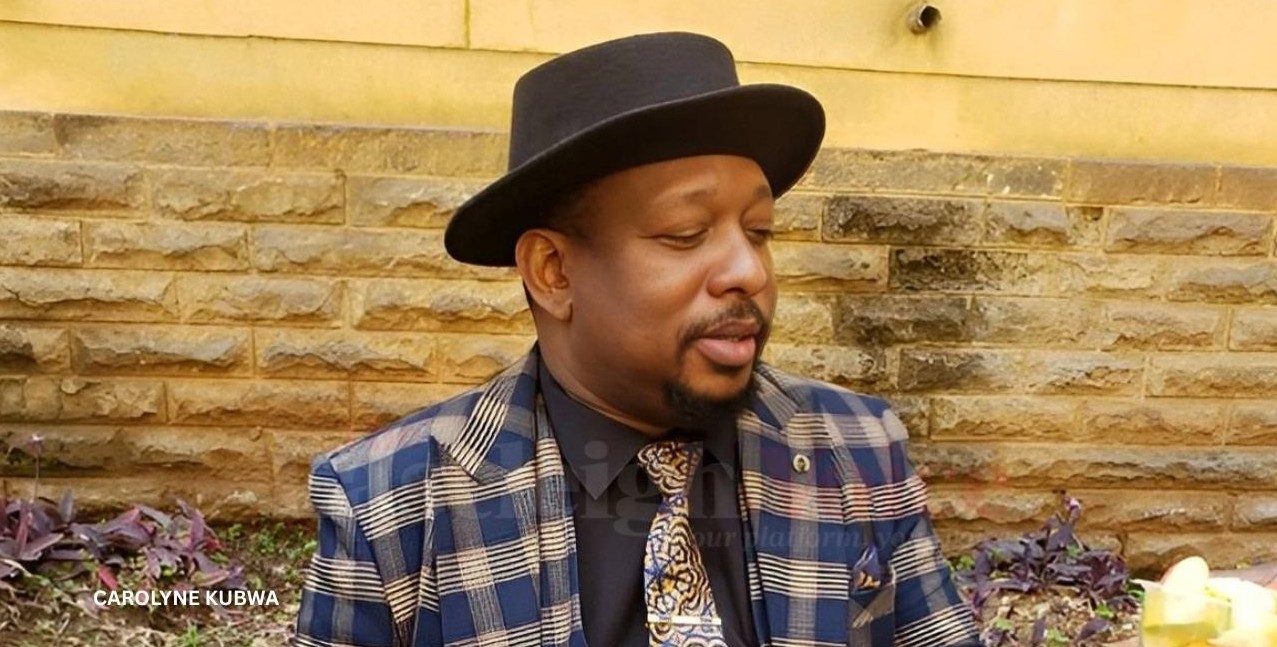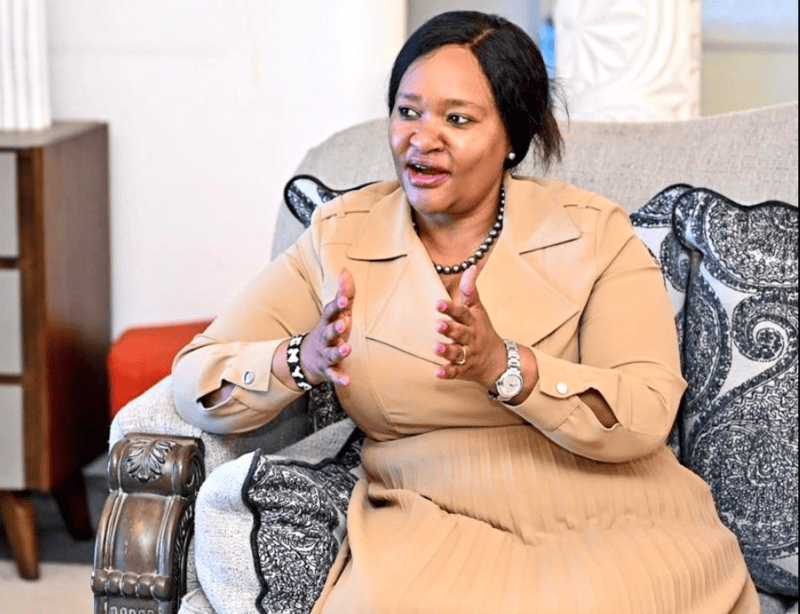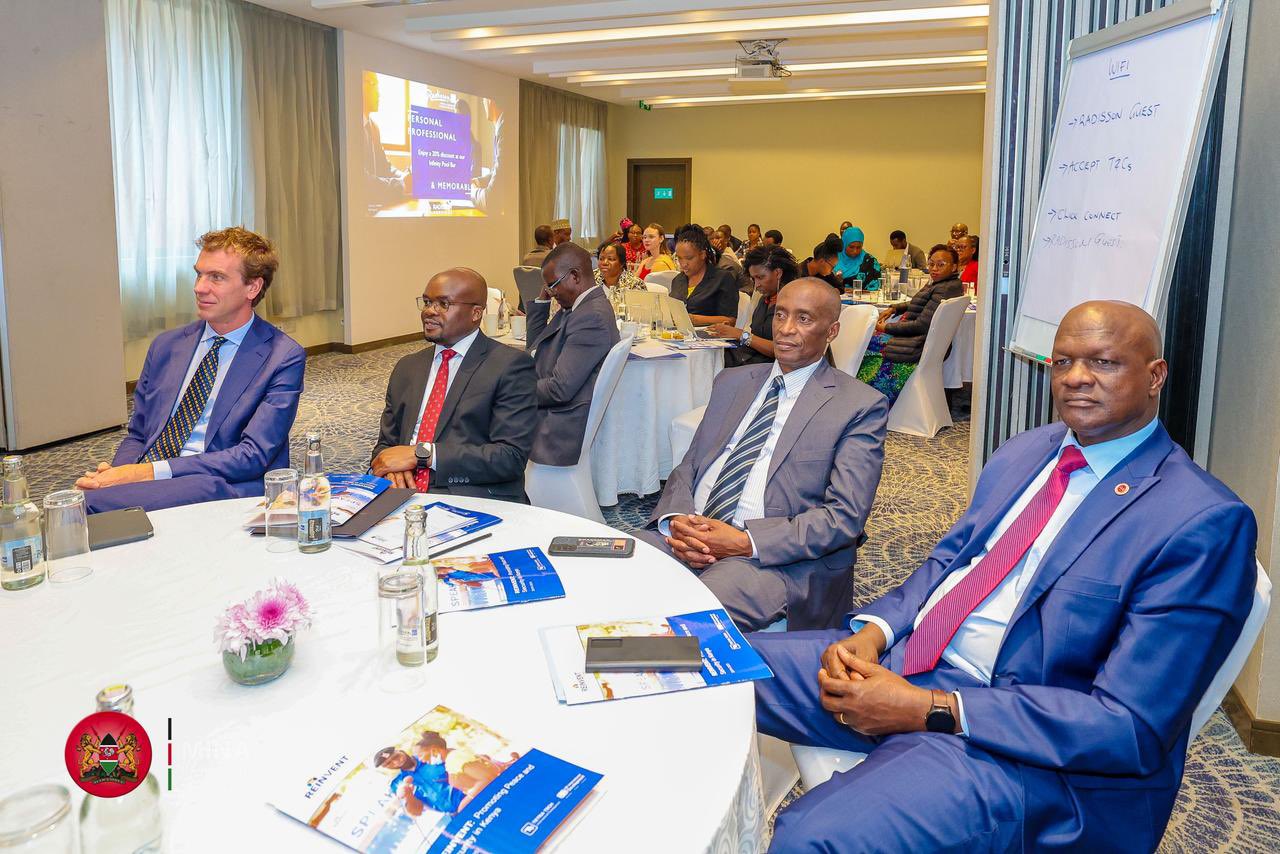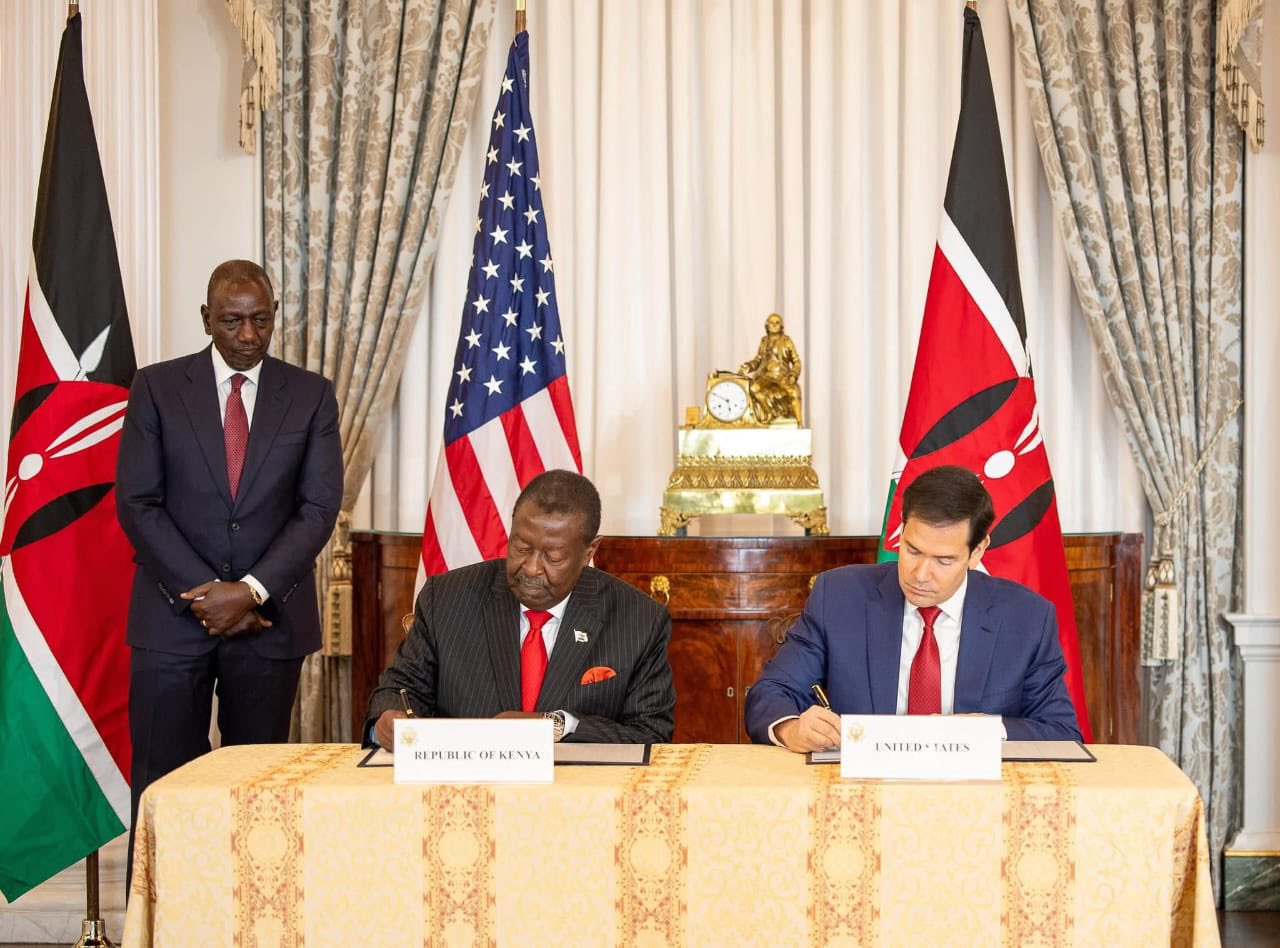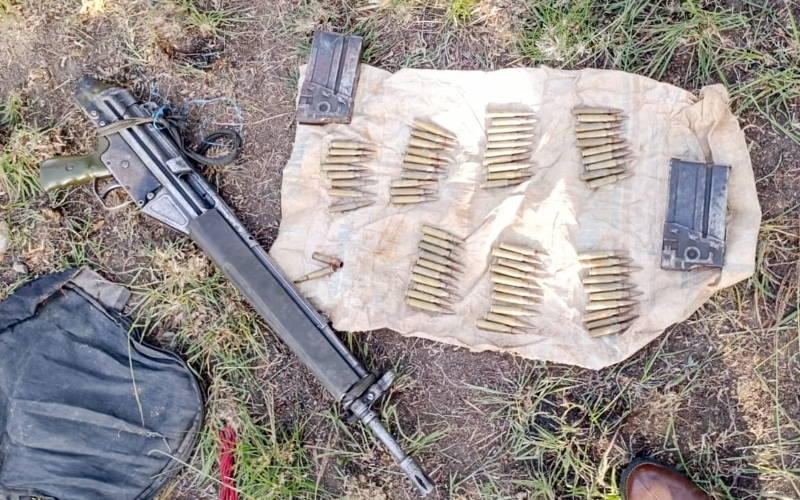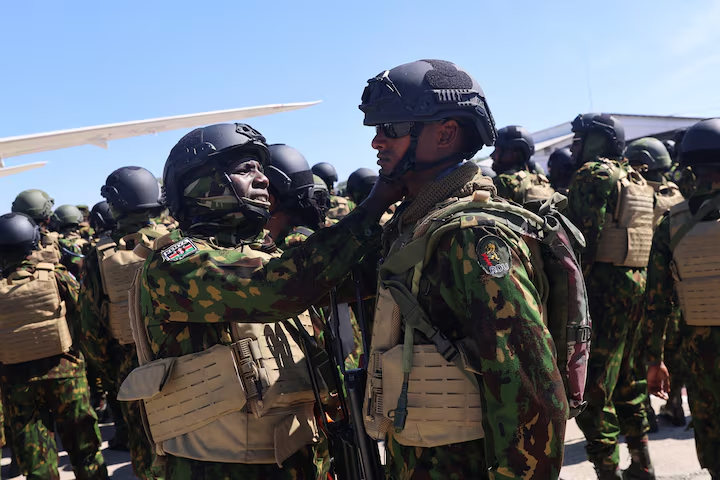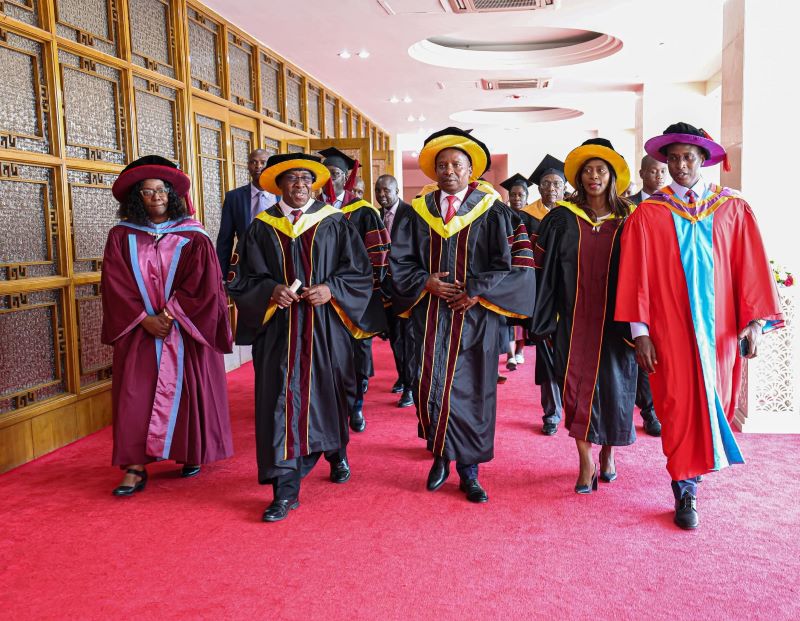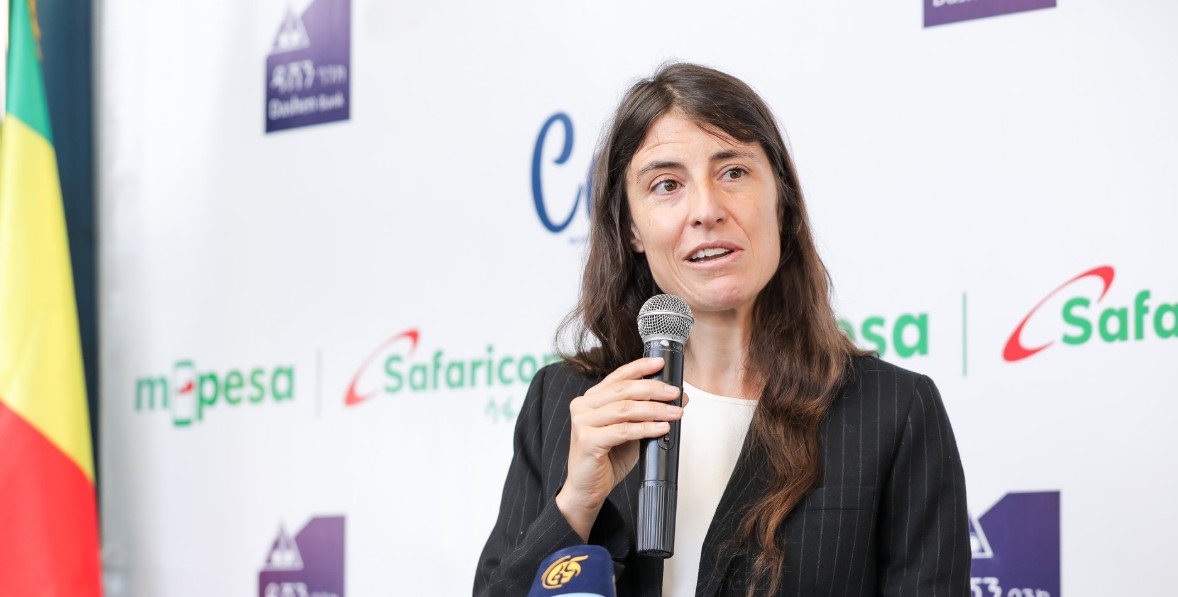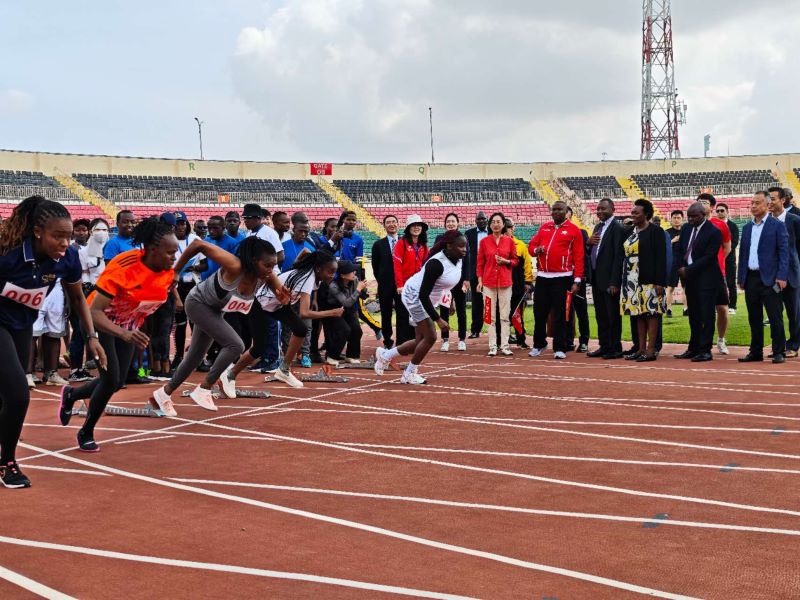Celebrating the life and works of Prof Ngũgĩ wa Thiong’o
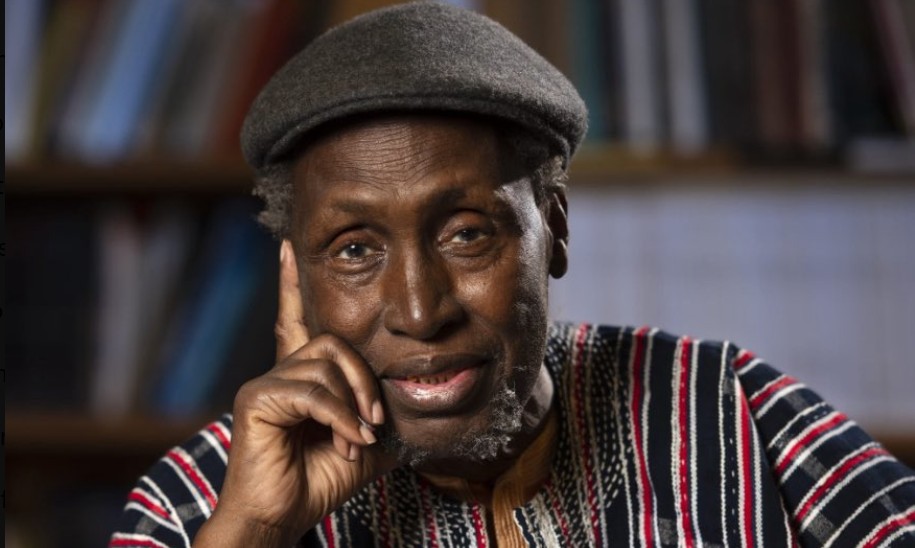
The day-long event, themed 'The Life and Works of Prof Ngũgĩ wa Thiong’o', is being held at the University of Nairobi's Taifa Hall.
Revered author Prof Ngũgĩ wa Thiong’o is being honoured at the University of Nairobi for his immense contribution to literature, culture and African thought.Speaking during the event held at UoN's Taifa Hall, Kamukunji MP Yusuf Hassan hailed the late author as a towering figure in African literature, whose works reshaped the cultural and political conscience of the continent.
Yusuf said Thiong’o, whom he interacted with on several occasions, including in London, Johannesburg and New York, was renowned for his powerful critique of colonialism and passionate defense of African languages.
More To Read
- Kenya Publishers Association honours Ngugi wa Thiong’o with Hall of Fame induction
- Ngũgĩ wa Thiong’o among 180 nominated for 2025 national heroes list
- Ngugi wa Thiong’o to be honoured as national hero for transforming literature
- Beyond 'Kifo Kisimani': Inside the mind of Kenya’s literary titan, Prof Kithaka wa Mberia
- Tundu Lissu on death of Ngugi wa Thiong'o: A prisoner's eulogy from Ukonga prison in Dar es Salaam
- Tribute to Professor Okello Oculi: From verse to vision, a life committed to Africa’s liberation
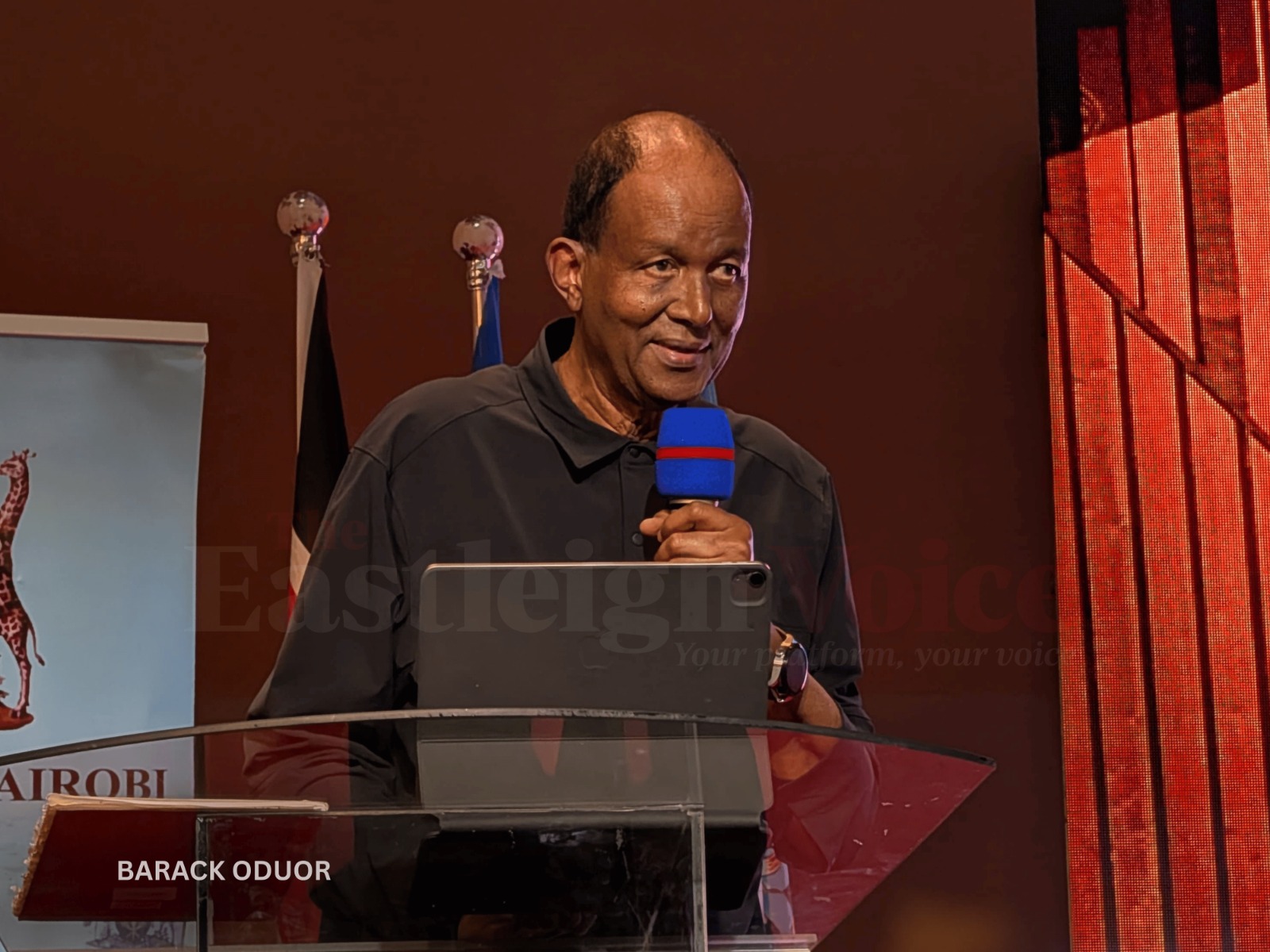 Kamukunji MP Yusuf Hassan pays tribute to Ngugi wa Thiong'o. (Photo: Barack Oduor)
Kamukunji MP Yusuf Hassan pays tribute to Ngugi wa Thiong'o. (Photo: Barack Oduor)
“Ngugi was undoubtedly a colossal figure and a seminal force in both global and African literature and African politics. He was a leading political, social and intellectual thinker of our times; a journalist, a novelist, a playwright, a professor, a philosopher and above all, for me, a revolutionary icon. His original theoretical interventions have shaped and influenced the global community on critical issues such as language, culture, identity and decolonisation," said Yusuf.
Live: Updates
That’s all from The Eastleigh Voice for now. Thank you for following our live coverage.
Thiong’o's long-time photographer, David, presents a heartfelt gift to the late author's son, Mr T.
The gift - a bound book of photographs which captured eight years of David’s work in Kenya, chronicles art and activism, including snapshots of his meeting with Thiong’o in Irvine, California.
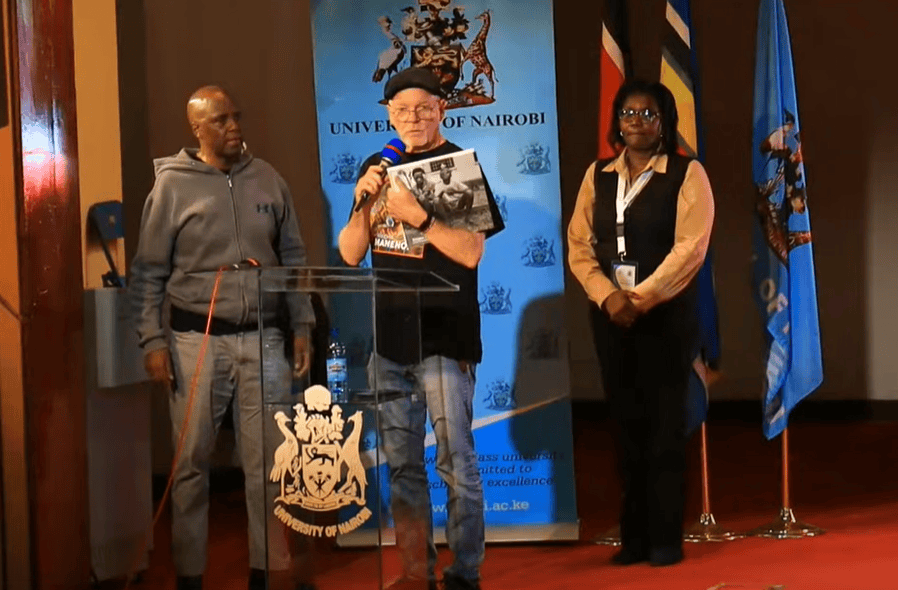 Screengrab of Ngugi wa Thiong’o's long-time photographer, David and son, Mr T (in grey hoodie).
Screengrab of Ngugi wa Thiong’o's long-time photographer, David and son, Mr T (in grey hoodie).
Keynote speaker Kamukunji MP Yusuf Hassan shares a moving tribute, saying Thiong’o’s warmth and humility were as profound as his intellect.
Yusuf discloses that despite being one of Africa’s most celebrated literary figures, Thiong'o remained deeply grounded in his roots in the United States, where they interacted in New York and was committed to the dignity of ordinary people, whom he engaged with grace.
"In 2002, I moved to New York, hoping to reconnect with Thiong'o, with whom I had a relationship when he was based in London, UK. He was then teaching at New York University. Unfortunately, shortly after my arrival, he relocated to the University of California, Irvine, where the warmer climate was more suited to his health. However, as luck would have it, he would frequently return to New York for literary engagements and speaking opportunities.
"And one such event was the PEN World Voices Festival, where he was the keynote speaker. The event was held at Washington Square Park in Greenwich Village, Manhattan, which was just a short walk from my home. We left an hour earlier only to find a long queue snaking around the building. When we inquired, we were told the crowd was there for Thiong'o's talk. It was clear to me and my partner that we wouldn't get tickets for that show. But as fate would have it, we happened to run to him at the entrance. He was dressed in a green jacket, with a hood, and beneath it he wore a kitenge shirt. This was his trademark.
"Of course, the ushers did not recognise him despite being previously a professor at that particular university. But Thiong'o was not bothered. He displayed great humility and demeanour and was approached, eventually, by university officials and directed to another entrance at the opposite side of the same building. He then asked us to follow him to the VIP entrance, and we were admitted as part of his entourage. Although there were other speakers on that day, I have seen Thiong'o speak in London, Johannesburg and now in New York. Audiences always responded enthusiastically to his fresh and original ideas. His presentation and speeches were always consistently well-received and ended with applause and standing ovations..."
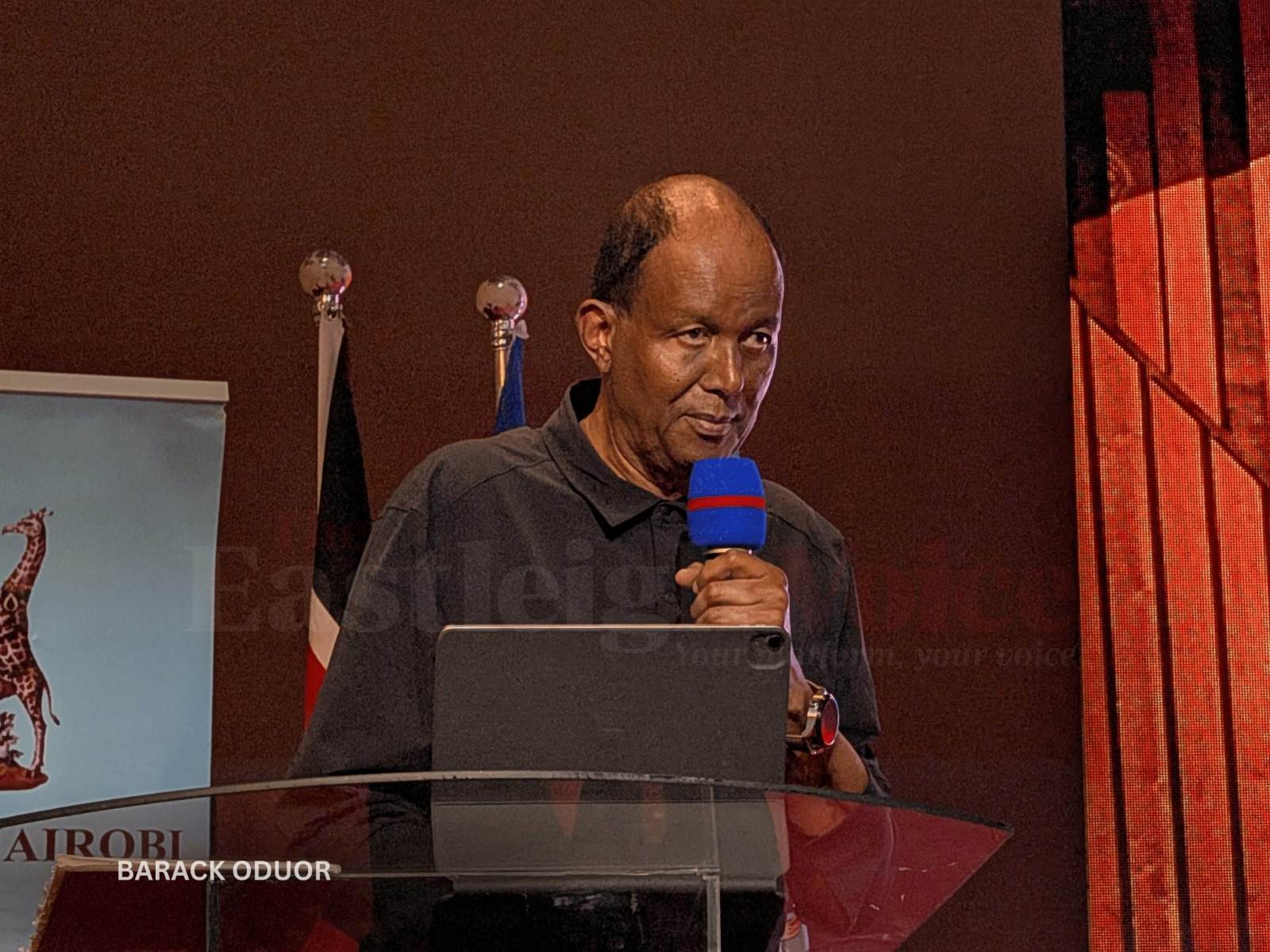 Kamukunji MP Yusuf Hassan pays tribute to Ngugi wa Thiong'o. (Photo: Barack Oduor)
Kamukunji MP Yusuf Hassan pays tribute to Ngugi wa Thiong'o. (Photo: Barack Oduor)Yusuf adds that Thiong'o's legacy is not confined to the pages of his magnificent literary works but extends to his contribution to the cultural, social, and political emancipation of Kenya and a liberated Africa.
“The depth and the breadth of his contribution to the cultural, social and political emancipation, as well as the humanisation of the Kenyan and African society at large, remains unparalleled in modern African history. His life has been intricately linked to our political and cultural struggles both on the continent and beyond. Thiong'o is better known for his seminal fiction, but I have known him as a revolutionary who dedicated his life to the liberation of Kenya and the realisation of a truly independent and prosperous nation. Free from the shackles of imperialism and neo-colonialism. As a revolutionary thinker and activist, Thiong'o effectively used the pen as a powerful weapon of resistance against imperialism, oppression and injustice, as well as a tool for decolonisation and liberation,” added Yusuf.
According to Yusuf, Thiong’o illuminated the struggles, dreams, and aspirations of Kenya and Africa with unmatched clarity and compassion. The MP said the late author envisioned a radically different Kenya, a reimagined Africa, and a more just and equitable global order.
"He gave a name, a face, and a voice to Kenya's toiling masses... He always stood with the dispossessed, the oppressed, the exploited and the downtrodden; the wretched of the earth and has brilliantly articulated the struggles, dreams and aspirations, contributing significantly to the struggle for fundamental change. All his writings, speeches and activism directly challenged the foundations of the Kenyan neocolonial state and envisioned a different Kenya, a different Africa and a more just and equitable global system. He rejected the racist and colonial notion that Africans were inherently inferior or limited in their abilities and should remain hewers of wood, drawers of water for the Western world," said Yusuf.
In exile, said Yusuf, Thiong'o played a pivotal role in the establishment of the December 12 Movement, which sought to reclaim the revolutionary promise of liberation.
“Thiong'o had left Kenya and had come fresh from our struggle for change. Apart from producing groundbreaking plays such Ngaahika Ndeenda and the Trial of Dedan Kimathi, establishing the Kamĩrĩthũ Centre and getting incarcerated by the Kenyan state, which feared the political consciousness of the Kenyan peasantry, he also played a pivotal role in the establishment of the December 12 movement. He was also bringing his vast experience to our nascent diaspora political group in London and in the neighbouring European countries,” he said.
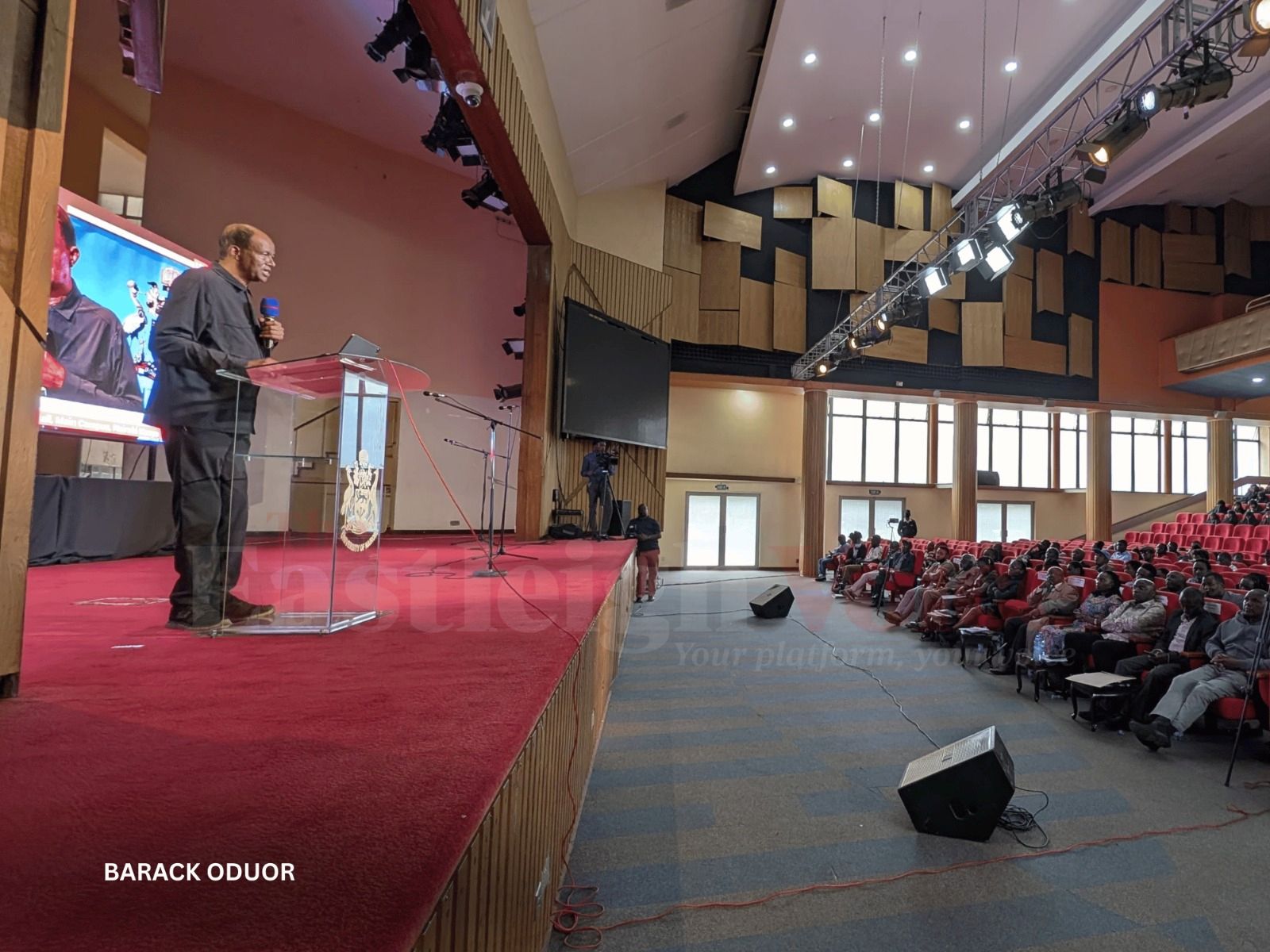 Kamukunji MP Yusuf Hassan pays tribute to Ngugi wa Thiong'o. (Photo: Barack Oduor)
Kamukunji MP Yusuf Hassan pays tribute to Ngugi wa Thiong'o. (Photo: Barack Oduor)The MP said his presence galvanised exiled intellectuals, students, and activists who were determined to challenge the neo-colonial Kenyan regime from abroad.
“One of the most significant developments during our exile time in London was the formation of Ukenya in 1986. Until then, we operated under the umbrella of the Committee for the Release of Political Prisoners, which united Kenyans and internationalists supporting our struggle against the neo-colonial Kenyan regime. The formation of Ukenya was a milestone as it was the first organisation to publicly challenge the legitimacy of the Moi regime since the banning of the Kenya People's Union (KPU) in the 1960s. It became clear we could no longer remain passive. We needed to act and stand with the Kenyan people,” narrated Yusuf.
Adding, “On February 18, 1986, we launched the movement in London with revolutionary songs, poems and speeches. This organisation was called Umoja wa Kupigania Demokrasia Kenya (Ukenya). Thiong'o was pivotal in the realisation of this movement, and as the chair, I delivered a keynote speech titled, From Mau Mau to Ukenya, linking the two struggles of the Kenyan people and outlining our programme and demands for change. We adopted a clear ideological platform grounded in evidence-based research, producing reports exposing the atrocities of the Moi regime: the arbitrary arrests, torture, state-sponsored vigilantism, and political repression. We documented and named victims, revealing the regime's brutality and corruption and challenged propaganda and disinformation. Our organisation mobilised the UK's public opinion, making it increasingly difficult for the Moi regime and his operatives to operate freely, especially as he often visited London. We protested his visits.”
Yusuf noted that Thiong’o’s quiet resilience, selfless leadership, and enduring commitment to justice shaped generations of activists both in Kenya and in exile.
He disclosed that in a bid to crush Ukenya, Kenyan authorities targeted his family members and stoked ethnic tensions by orchestrating rallies to denounce the movement through the coercion of students, some of whom now serve as MPs.
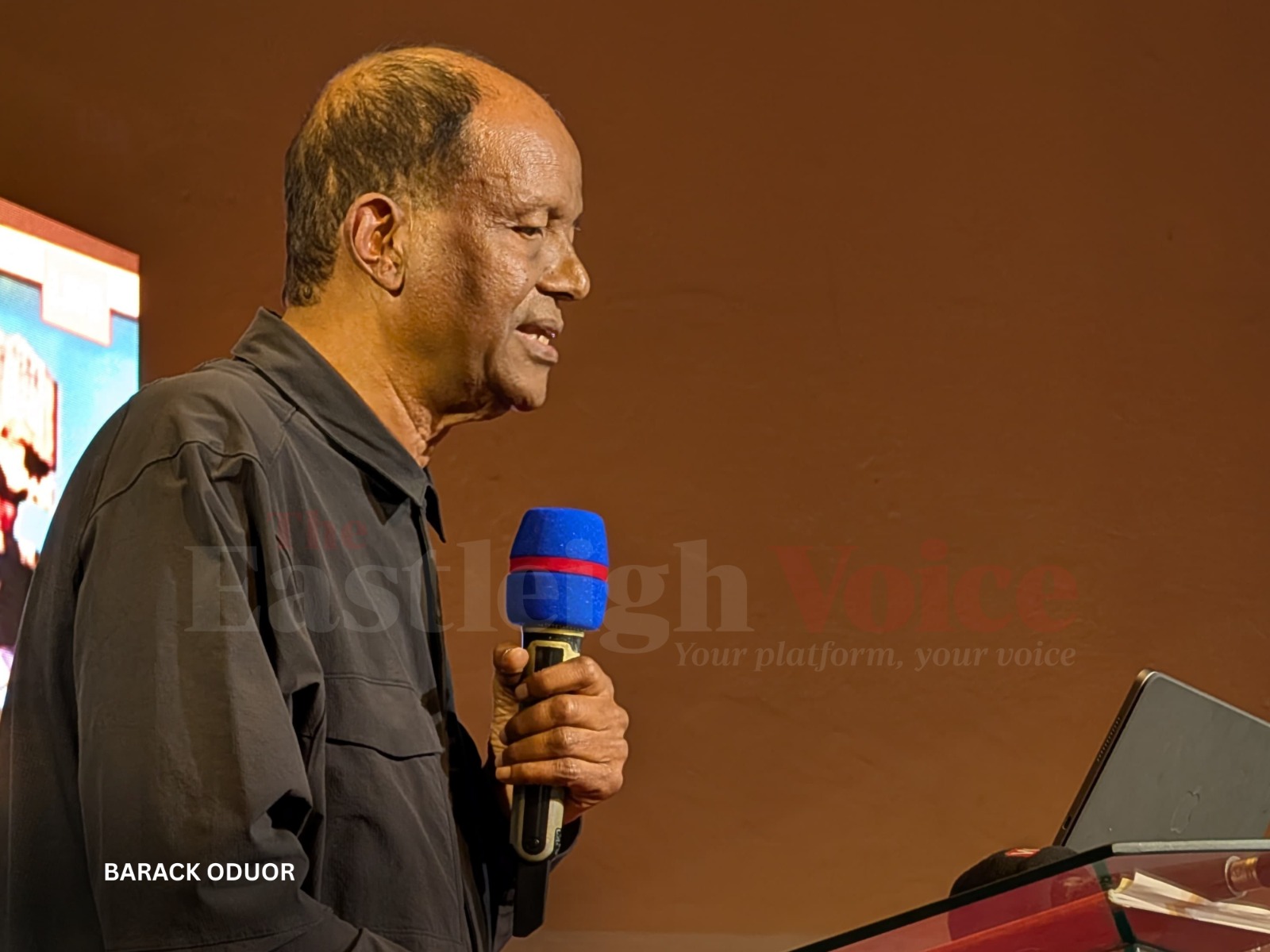 Kamukunji MP Yusuf Hassan pays tribute to Ngugi wa Thiong'o. (Photo: Barack Oduor)
Kamukunji MP Yusuf Hassan pays tribute to Ngugi wa Thiong'o. (Photo: Barack Oduor)“The repressive state's reaction to the launch of Ukenya was predictable. Its first move was to arrest my father Hassan Abdi, then living in Garissa. They also ethnicised the movement, focusing on the Somali community staging demonstrations where people were organised to denounce people such as me. I have colleagues now in Parliament from Wajir and Garissa who, when they were students, were coerced by state officials to burn effigies of me,” he said.
He pointed out that during the 2011 Kamukunji by-election, Thiong’o’s support for his candidature was unwavering despite fears for his safety. The fears, said Yusuf, materialised after he was targeted in an attempted assassination.
“When I decided to run for the Kamukunji Parliamentary seat in the 2011 by-election, Thiong'o was very supportive, though deeply concerned that elements within the system might rig the election or even harm me. Despite significant obstacles. I was elected as an MP on August 11, 2011. Thiong'o's concerns proved justified when I was violently attacked by assassins on December 7, 2012, sustaining serious injuries. The bomb blast just before the 2013 elections was intended to eliminate me from the race. Thiong'o closely followed my recovery and was delighted when, against all odds, I was re-elected by the people of Kamukunji in a landslide on the hospital bed on March 3, 2013,” said Yusuf.
Yusuf, at the same time, expressed grief that exiled activists he had hoped would return and collectively shape a progressive movement have not returned. He said the proudest moment was in 2015 when Thiong’o finally visited Kamukunji, where, while still recovering and on crutches, he hosted him at Eastleigh High School.
“I had always hoped Thiong'o and other exiled comrades would return home so we could build a progressive movement that reflects the Kenyan people's desires for a free, democratic and just nation. I longed for him to visit Kamukunji, where I was an MP. After several unsuccessful attempts, Thiong'o finally visited in June 2015. By then, I was in my second term and still recovering from the attack and walking on crutches. The event was held at Eastleigh High School and brought together students from secondary schools across Kamukunji. Indeed, it was a proud moment for the youth of the neighbourhood; to meet and engage with this legendary writer and revolutionary figure.”
Holding back tears, Yusuf celebrated Thiong'o as an unsung second liberation hero who "Showed no interest in titles, status or material gain. He was always playing his role selflessly. Throughout his life, he remained upright, unbroken and unwavering. For many of us, Thiong'o was never absent from our lives; he was a constant presence, writing, leading, mentoring, campaigning, encouraging, sharing, supporting, and inspiring. It is incredibly hard to accept that this giant of our times is no longer with us. It is even harder to say goodbye... I want to assure you, comrade Thiong'o, that in our hearts and the history of our resistance, it is secure. Your writings, deeds, thoughts and actions will continue to inspire millions of Kenyans and Africans. You will be forever remembered, revered and celebrated as a hero of our nation.”
Sparked by the Alliance student’s tribute, People's Liberation Party (PLP) leader Martha Karua reflected on the deep resonance of Thiong’o’s legacy.
“As the student spoke, I found myself reflecting on the role of language in shaping our culture, identity, and dignity - and how using borrowed languages, without grounding in our own, diminishes that. Thiong'o’s work has forced us to confront the truth: language perpetuates colonialism. There’s value in multilingualism - but as the Swahili say, muacha mila ni mtumwa. There is a close relationship between language and identity, and if you do not know anything about your language, then you know nothing about your culture," said Karua.
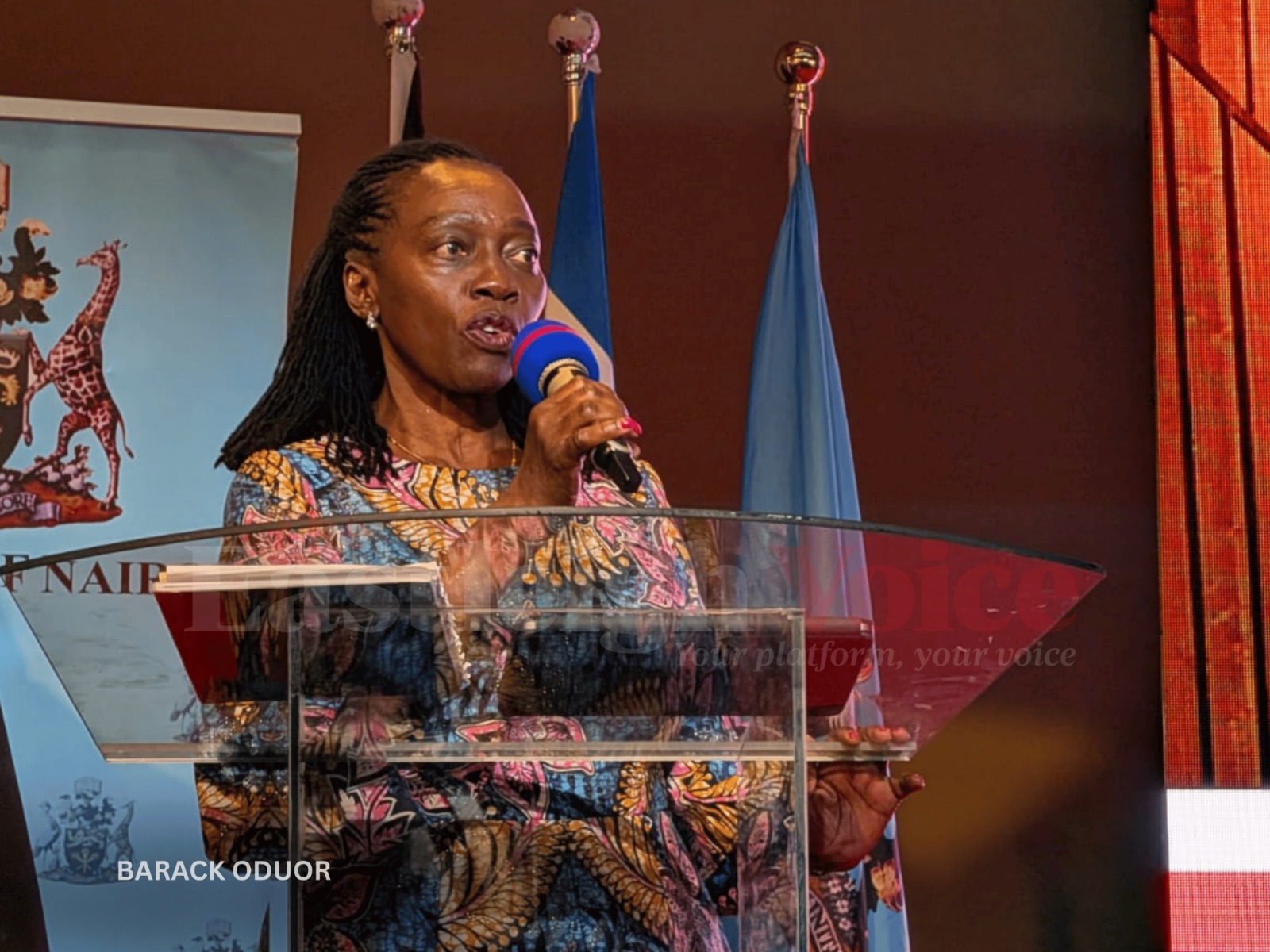 People's Liberation Party (PLP) leader Martha Karua pays tribute to Ngugi wa Thiong'o. (Photo: Barack Oduor)
People's Liberation Party (PLP) leader Martha Karua pays tribute to Ngugi wa Thiong'o. (Photo: Barack Oduor)She went on, "This is the reality we have to confront, including in our education system and the place we give our mother-tongues, which I believe we are helping bury over time because our children know very little. Surprisingly, those in the diaspora make an effort to teach their children... What history are we teaching in our schools - written by whom, and from whose perspective? 60 years on, do we have history written and researched by us?"
Karua added that the play, The Trial of Dedan Kimathi, invites modern comparison.
"Are today’s leaders in Parliament serving the people or the elite? What impact do we individually have on society? Thiong'o's impact is being felt long after he ceased to live in Kenya. It challenges me, and I hope it challenges you about the impact we will leave and the changes we bring to our society."
In a moving tribute, members of the original Kamĩrĩthũ cast reflect on their transformative play, voice deep gratitude to Thiong’o.
"He was our village mate. He was a committed person, and that is how he managed to cast the play, I'll Marry When I Want, because he wanted people to remain together," said Lucy Wangui.
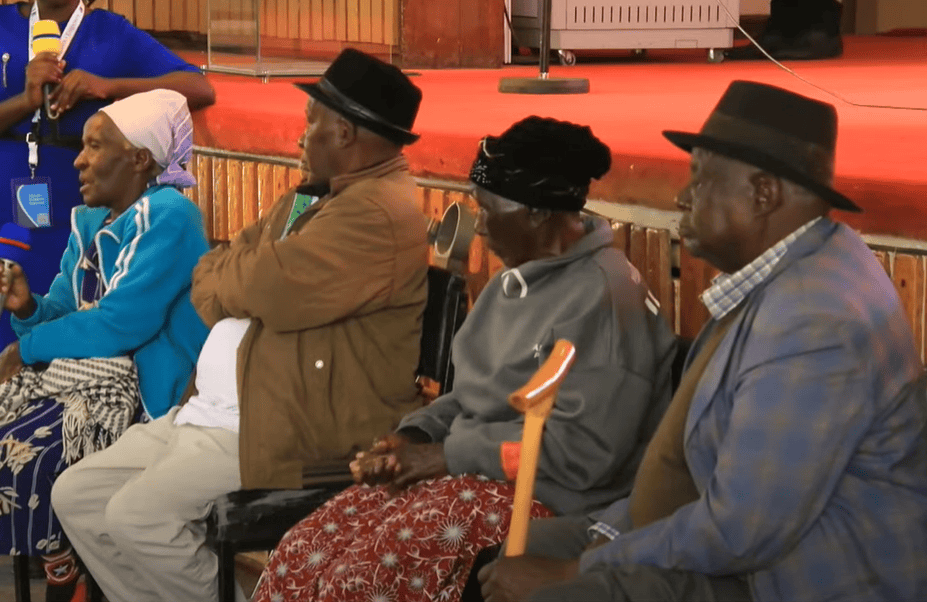 A section of the original Kamĩrĩthũ cast. Far left, Lucy Wangui.
A section of the original Kamĩrĩthũ cast. Far left, Lucy Wangui.
Students, among them from The Alliance, where Thiong'o was an alumnus- acknowledge the weight the footsteps of the literary giant's works carry, saying it shines with courage, intellect, and unapologetic African pride.
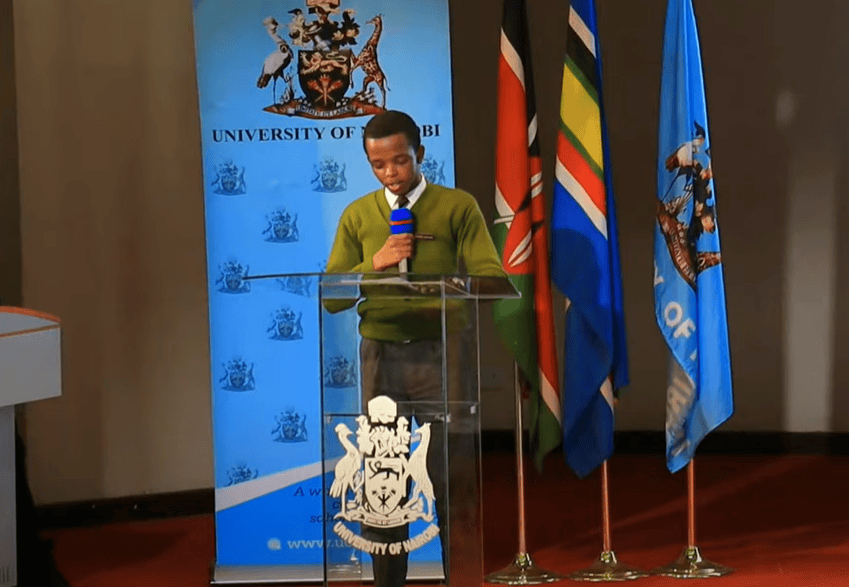 An Alliance School student pays tribute to Ngugi wa Thiong'o.
An Alliance School student pays tribute to Ngugi wa Thiong'o.Nairobi Performing Arts members, led by Stuart Nash, pay tribute to Thiong'o, saying the renowned author was excited about their adaptation of the Trial of Dedan Kimathi.
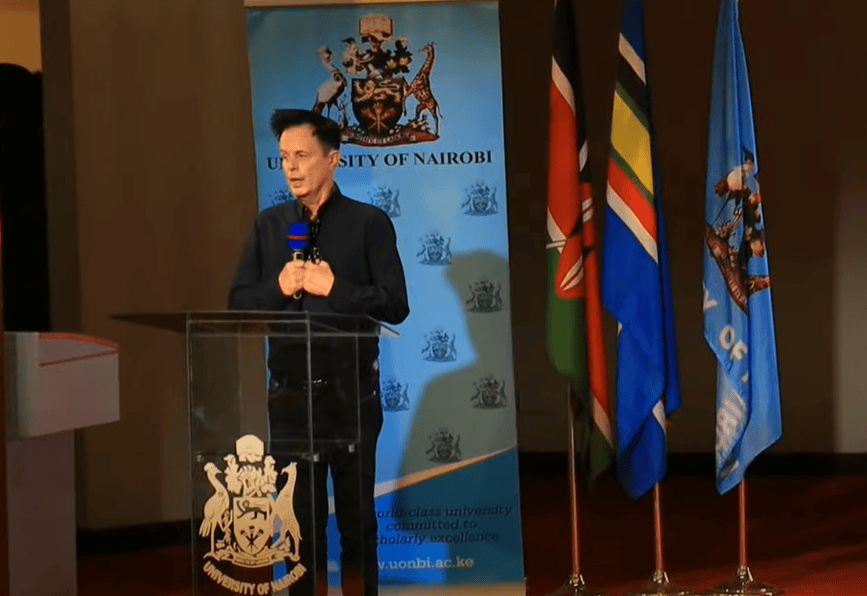 Screen grab of Stuart Nash at the tribute.
Screen grab of Stuart Nash at the tribute."We applied and got the rights to do it and are currently showcasing it at the National Theatre. The show opened yesterday and runs to next Sunday. We also commissioned Ngaahika Ndeenda."
Kiarie Kamau, the CEO and Managing Director of East African Educational Publishers, documents Thiong'o's literary work journey with the publisher and how the novels' selection for reading in public schools, colleges and universities continues to drive thought across the world.
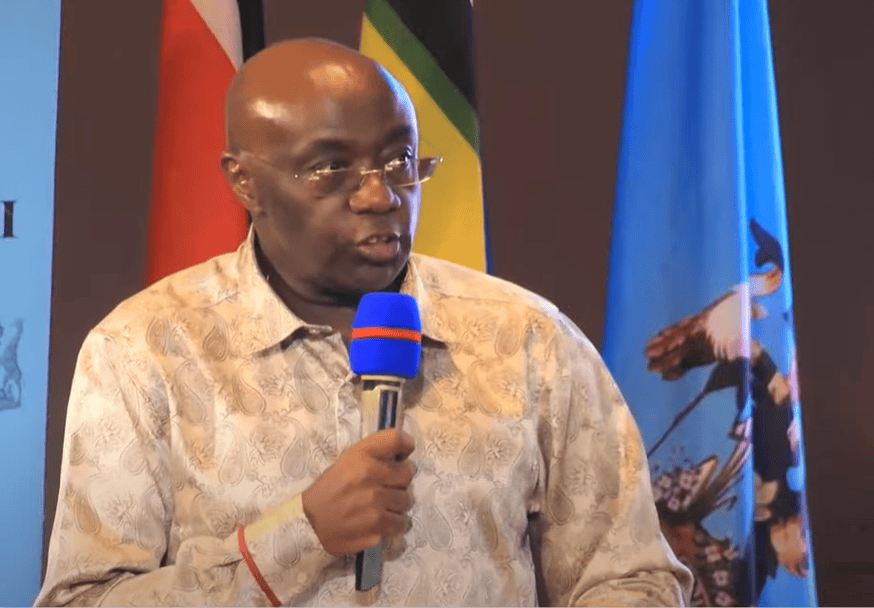 Screengrab of MD Kiarie Kamau.
Screengrab of MD Kiarie Kamau.UoN students, 'Modern Artists of UoN' - a theatre group based at the faculty of education, Kikuyu Campus - take to the stage to play one of Thiongo's prolific works, Black Rabbit.
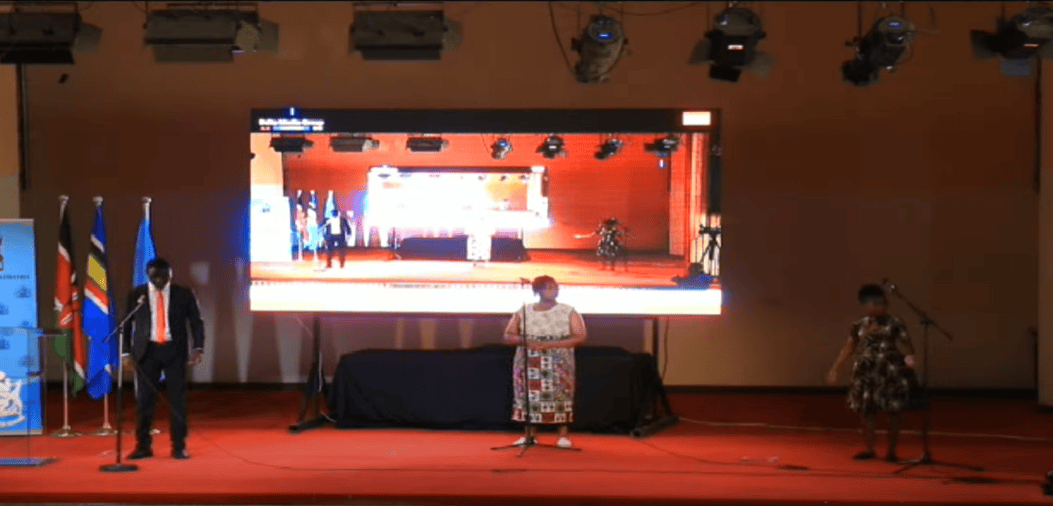 Screengrab of the thespians showcasing the play.
Screengrab of the thespians showcasing the play.In his remarks Prof Ayub Gitau,the Deputy Vice Chancellor, Academic Affairs, says to walk in Thiongo's shoes is to confront power, champion culture, and speak truth.
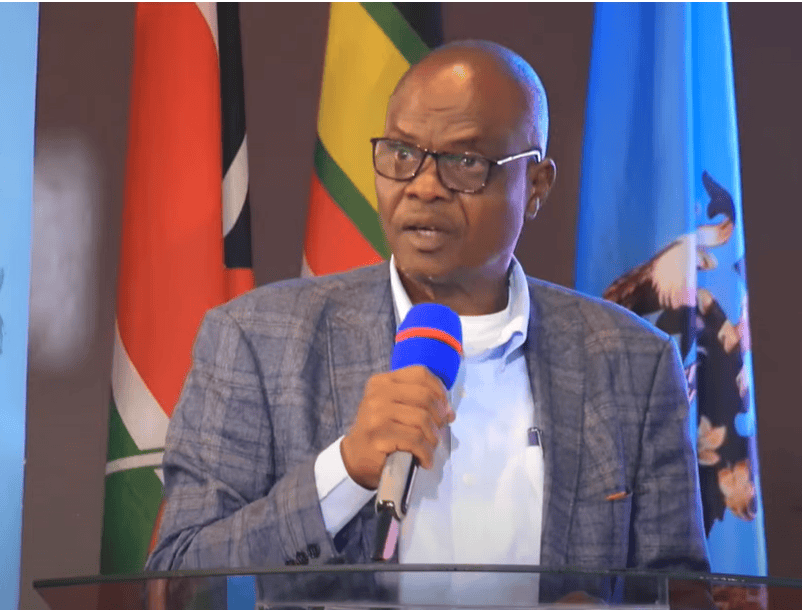 Prof Ayub Gitau pays tribute to Ngugi wa Thiong'o.
Prof Ayub Gitau pays tribute to Ngugi wa Thiong'o."His legacy and works, not just in libraries and classrooms but in every young mind, encouraged questioning, to write and hope. May we celebrate his memory by upholding the values he stood for," said Prof Gitatu.
Professor Miriam Musonye, chair of the department of literature, says Ngugi's life celebration at Taifa Hall is befitting as he once filled its walls with thought, debate and vision.
"It is fitting that we gather in a place so closely tied to his intellectual and artistic journey. His presence still lingers on," said Prof Musonye.
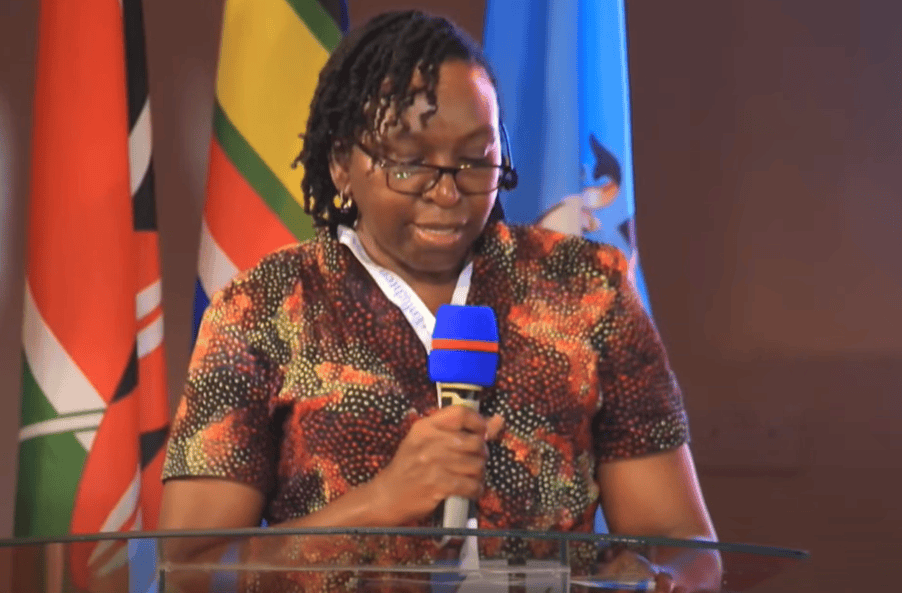 Screengrab of Prof Musonye honouring author Ngũgĩ wa Thiong'o.
Screengrab of Prof Musonye honouring author Ngũgĩ wa Thiong'o.She went on, "Ngugi wa Thiong'go was many things; he was a scholar, a teacher, a revolutionary, a writer and above all a visionary who showed us that the written word could stir the soul and unsettle empires. From Weep Not Child, Petals of Blood to Wizard of the Crow, Ngugi's pen wrestled with history, with injustice and identity. But he also helped us embrace our African languages, and we pay tribute to that."
Top Stories Today
